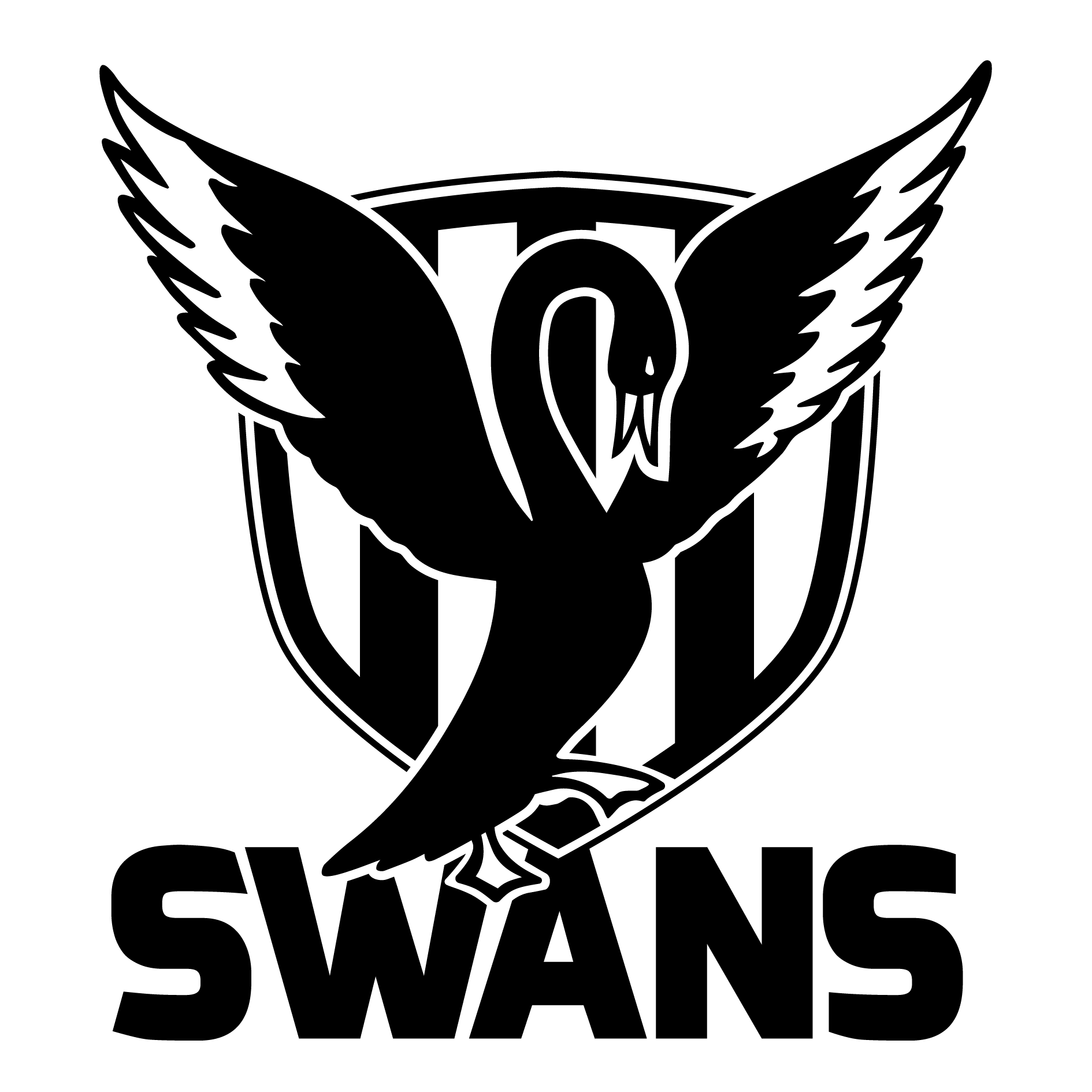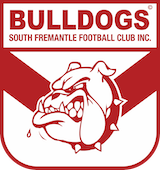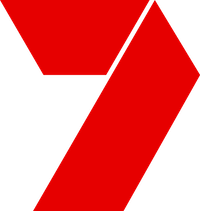Select grade below
- Round 2Sat, 12 Apr 20252:10 PM
 VS
VS Joondalup Arena
Joondalup Arena - Round 3Sat, 19 Apr 20252:30 PM
 VS
VS Mineral Resources Park
Mineral Resources Park - Round 4Sat, 26 Apr 20257:10 PM
 VS
VS Mineral Resources Park
Mineral Resources Park - Round 5Sat, 3 May 20252:30 PM
 VS
VS Mineral Resources Park
Mineral Resources Park - Round 6Sat, 10 May 20252:30 PM
 VS
VS East Fremantle Oval
East Fremantle Oval - Round 7Sat, 24 May 20252:10 PM
 VS
VS Mineral Resources Park
Mineral Resources Park - Round 8Sat, 31 May 20252:30 PM
 VS
VS Revo Fitness Stadium
Revo Fitness Stadium - Round 9Sat, 7 Jun 20251:10 PM
 VS
VS Mineral Resources Park
Mineral Resources Park - Round 10Sat, 14 Jun 20252:30 PM
 VS
VS Steel Blue Oval
Steel Blue Oval - Round 12Sat, 28 Jun 20252:30 PM
 VS
VS Fremantle Community Bank Oval
Fremantle Community Bank Oval - Round 13Sat, 5 Jul 20252:30 PM
 VS
VS Mineral Resources Park
Mineral Resources Park - Round 14Sat, 12 Jul 20252:30 PM
 VS
VS Sullivan Logistics Stadium
Sullivan Logistics Stadium - Round 15Sat, 19 Jul 20252:10 PM
 VS
VS Mineral Resources Park
Mineral Resources Park - Round 17Sat, 2 Aug 20252:30 PM
 VS
VS Mineral Resources Park
Mineral Resources Park - Round 18Sat, 9 Aug 20252:30 PM
 VS
VS Lane Group Stadium
Lane Group Stadium - Round 19Sat, 16 Aug 20252:30 PM
 VS
VS Mineral Resources Park
Mineral Resources Park - Round 20Sat, 23 Aug 20252:30 PM
 VS
VS Sullivan Logistics Stadium
Sullivan Logistics Stadium
Wim Rosbender To Be Club Legend In 2016

It is with great pleasure that the Perth Football Club would like to announce that Wim Rosbender will be the club legend for 2016.
“You question yourself as to the other people that you certainly rate above yourself in many ways. It is humbling and probably my greatest honour as far as the Perth Football Club goes as an individual,” said Rosbender on discussing when he found out that he would be this year’s legend.
Rosbender played his juniors for Vic Park before progressing to the Perth colts in 1970. In 1971 he was captain of the colts.
When Barry Cable took over as coach of the Demons in 1972, Rosbender was promoted to the league team and soon established himself as a ruckman in the side.
“Trevor Parsons broke down with a knee injury, Graham Edwards had retired mainly due to injury I think so there was an opening for me to slot straight in and Cabes (Barry Cable) put in a lot of work as far as one-on-one work with me at lunchtimes leading up to the season.”
“I can’t really remember how I went. All I remember is my first memory from my first game was getting a broken nose from Lorne Cook who managed to break my nose and take the mark at the same time.”
In 1974 new coach Ken Armstrong decided to use Rosbender as a ruckman and a forward. This year was also Rosbenders first taste of a WAFL Grand Final. Unfortunately on that day Perth lost to East Fremantle.
“We were a very young and inexperienced team so I think that is what ultimately cost us. There were a lot of inexperienced players playing that year and I think this was part of the experience of growing towards the success of the later years.”
Two years later in 1976 Rosbender was able to play in another grand final. This time the result was in his favour with the team beating East Perth by 23 points.
“I think we finished third at the end of the home and away season and we weren’t really fancied to even get through to the grand final and it was just one of those years where everything clicked and we went all the way through.”
1977 proved to be a big year for Rosbender. He made the first of his three appearances for Western Australia against Victoria. Against the Victorians Rosbender played at full back on Peter Hudson and proved to be quite effective
“Ken McAullay was the person who decided that for whatever reason and I don’t know his reasoning that I would play on Peter Hudson.”
“The fortunate thing is that whilst he had a few shots at goal I don’t think he scored a goal on me from memory. I can always say that I kept him goalless in my one encounter with him.”
1977 also saw the Demons avenge the result from the 1974 Grand Final with victory over East Fremantle on the final day of the season. Such was Rosbender’s influence on the game that he won the Simpson Medal.
“You are always happy to win but when you get told later that you have been voted best on ground for the day I was probably reasonably lucky as there were a few other guys that played very well on that day and I was fortunate enough to get the nod.”
Rosbender injured himself early in the 1979 season but he returned to captain the club in 1980. This would be his last season in the WAFL as work commitments saw him relocate to Sydney.
“I think in the seventies era a lot of guys pulled the plug way to early on their career. Mal Day, Colin Lofts, John Quartermaine.”
“Everyone was trying to build their careers, they were married with young families and given the success that we’d had we felt that we’d probably achieved a lot more than we expected to and it was the days where you had to look at building your career for your future.”
The lure of working with former teammate and newly appointed coach of the Demons Robert Wiley drew Rosbender back to the club in 1985.
“I just contacted Robert and said I was prepared to assist if he wanted any help in any form and that is how I ended up doing the running.”
It may not be a memorable moment for Perth fans but one thing that did stand out for Rosbender in his playing career was the 1978 grand final and an incident that occurred after the siren.
“After losing the 1978 grand final I had an altercation with a supporter who came up to me on the ground after the siren sounded and was sort of gloating in my face. That is probably something you remember because it stopped us equalling the 1960’s guys who achieved three on the trot.”
“On that day we had full forward Murray Couper out, key defender John Quartermaine was out and a few guys were carrying a few injuries.”
“Alan Joyce was the chairman of selectors at the time and there was a guy who knew Joycey from his East Fremantle days who advised us which way the weather was going to go for the rest of the day.”
“Unfortunately we kicked against the tide every quarter.”
As much as everything went our way in 1976 and helped us get to the grand final I would say that in the 1978 grand final everything seemed to be stacked against us on the day.”
Rosbender played 156 games for the Perth Football Club, kicking 58 goals and admits that it was great to play football for the club that he supported as a kid.
“It was amazing to play for the club that you barracked for as a junior. The teammates that I had were phenomenal as people and with their work ethic and their desire to do the little things to achieve success.”



















